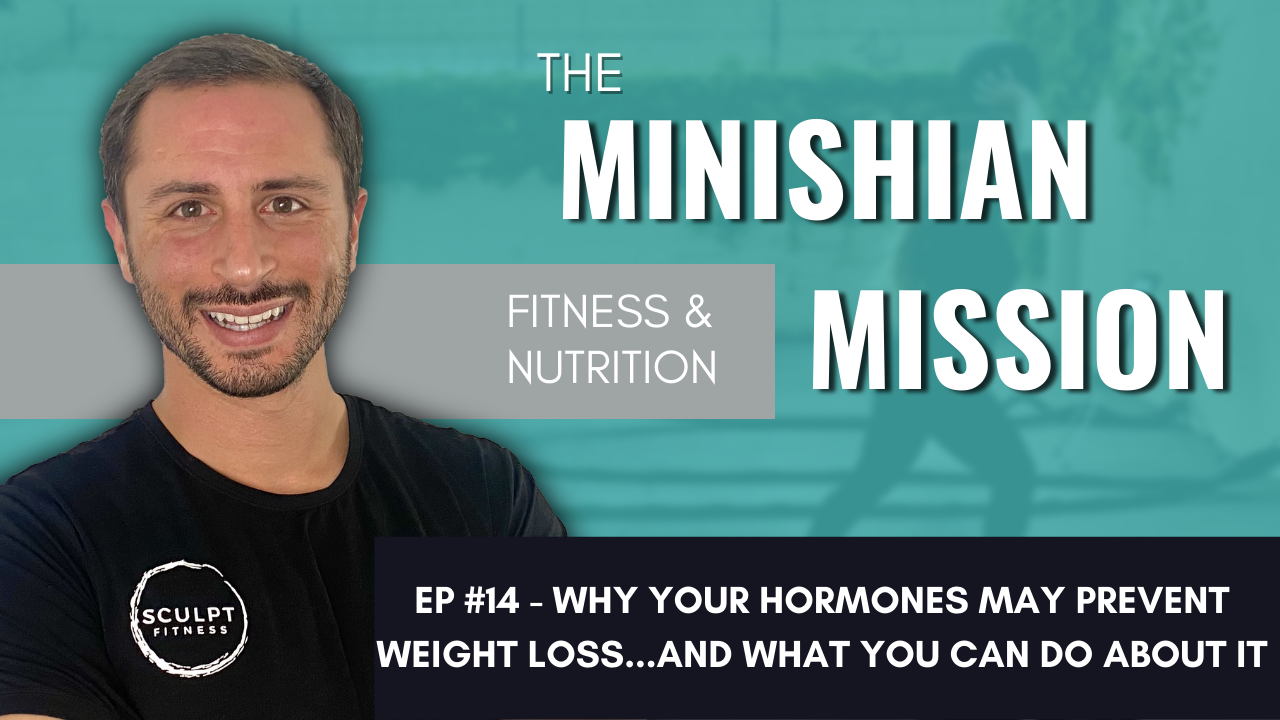Weight loss is possible. Your hormones don’t have the final say.

The Episode: Why Your Hormones May Prevent Weight Loss…and What You Can Do About It
Your hormones won’t stop you from losing weight, but they may be a barrier you need to learn how to overcome. Whether you’ve been diagnosed with a medical condition or not, your hormones don’t have the final say…YOU DO! Here is a brief summary of how hormones function in regards to weight loss and what steps you can take to make your hormones work in your favor.
“For the majority of people, their lifestyle is promoting hormonal imbalances which impacts their ability to lose weight.” — David Minishian
The Role of Hormones
Hormones play two main roles in weight loss.
1) Hormones promote action or inaction. Do you feel hungry? Your hormones are saying you need to seek out food and eat. Do you feel lethargic? Your hormones are suggest you need to stop and rest. Our hormones are powerful drivers that impact our decisions. When hormones are properly functioning, they make the right suggestions to cue us on what the body needs. But when there are hormone imbalances, the body may make incorrect suggestions which lead to the wrong action.
2) Hormones impact body composition. Hormone levels regulate the amount of lean body mass and fat mass each person has. They tell our body where to store energy and how much muscle tissue to build. Our daily activity, exercise routine, nutritional intake, and mindset can all impact our hormone levels. In fact, professional athletes, body builders and others seeking greater physical progress use hormones, whether legally or illegally, to gain a competitive advantage even at the expensive of their overall health.
Promoting Balanced Hormones
To promote a hormonal balance that supports your ability to lose weight, there are a few key actions you can take:
1) Sleep 8-9 hours each night. When you don’t sleep enough, your body promotes more fat storage.
2) Eat 25-40 grams of fiber a day. If you’re not eating whole foods like fruits and vegetables, your body won’t send the signal to your brain saying, “Hey I’m full! Stop eating!” Making it more likely that you’ll overeat.
3) Eat more smaller meals or eat fewer larger meals. You may find that one strategy works better to help you regulate your food intake without feeling hungry.
4) Drink 8 cups of water a day. When you aren’t hydrated, your body does not function optimally and the thirst you are feeling may seem like hunger, prompting you to eat even when you don’t need to eat.
5) Reduce processed food consumption. Specifically, limiting processed carbohydrates will keep your blood sugar and insulin levels in check. Chronically elevated blood glucose level cause excessive inflammation, which damages your body’s tissues and organs, and promotes greater fat storage.
The Right Exercise
All exercise is good exercise. However, not all exercise is the best at accomplishing weight loss (or fat loss). Resistance Based Training does a better job at promoting growth hormone production to increase lean muscle mass and reduce fat storage. In addition to the increase in lean muscle mass, resistance based training also better regulates insulin levels and reduces insulin resistance which improves blood sugar levels. Cardio or flexibility based exercises are important too, but for weight loss they are of secondary importance. In fact, too much cardio may promote excessive cortisol in some individuals which may promote weight gain. Too much flexibility training decreases overall muscle strength and doesn’t promote weight loss specifically.
Ready to build the body you want with a sustainable lifestyle?
Watch

David Minishian, MPH
Fitness and Nutrition Coach
David is the owner and head coach at Sculpt Fitness in Long Beach, CA. He leads the mission at Sculpt to educate, equip, and empower the local community to make the best decisions for their health. For over 10 years he has coached exercise and nutrition, helping clients create sustainable lifestyle to build the body they want. When he's not training, coaching or cooking, David is on an adventure with his wife and kids or teeing up his next shot on a golf course.